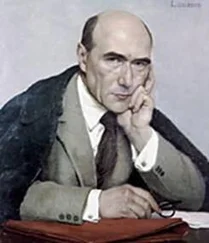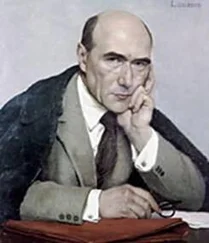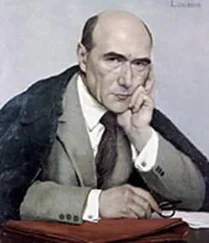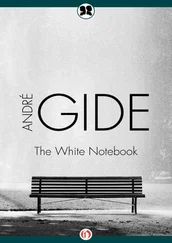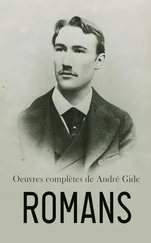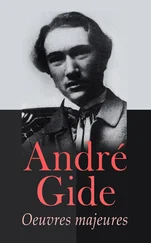The last day, Dindiki couldn’t walk any more except painfully, leaning over on one side; I felt him suffer. I did not take my eyes from him. It was between my hands that he died, without a moan, like a little child who falls asleep.

1The n is pronounced.
1 Oken, Allgemeine Naturgeschichte .
1Centigrade. Translator’s note.
“I WONDER if it is the end,” I read in a letter dated the 30th of May, the last I received from him; as cordial as usual, and pierced like the others by a sort of harsh playfulness, by a somewhat grumpy charm, which gave a rather briny savor to the outbursts of his sympathy; but already imprinted with the mysterious gravity and presentiment of death.
That letter cut me to the heart like a farewell. I felt myself in arrears with him. I had remained too long a time without seeing him again or writing him. Had I ever been able to tell him, what I wrote him immediately, of all the affection, the admiration and veneration that, in spite of so much absence and silence, I had never ceased to devote to him? Of my elders, I loved and knew only him.
“It is four years since I have done anything worth while. On the other hand, I have asthma. It’s pretty annoying. What consoles me is the success (moderate, I agree) of the French translations.”
Conrad loved France much too deeply not to attach the greatest value to the opinion of the French about his work. This was not yet known except to a small number of admirers. The announcement of his death was needed before the press would finally consent to be moved. They seemed suddenly to understand whom we were losing.
It was Claudel who made Conrad known to me. I remain indebted to him for it. After a lunch we had had together, as some one of the other guests was speaking with enthusiasm of Kipling, Claudel smiled a little disdainfully and threw in the name of Conrad. Not one of us knew it yet.
“What should I read of his?” asked someone.
“Everything,” answered Claudel. And he quoted The Nigger of the Narcissus, Youth, Typhoon, Lord Jim.… None of these books had yet been translated. I immediately made a note of their titles, and was won over from the very first contact with them.
A short time after, while traveling in England, I had the opportunity of coming directly in contact with their author. Valéry Larbaud was accompanying me (if my memory does not betray me). Miss Tobin, a charming young Englishwoman whom Larbaud knew, was to introduce us to him. Conrad was then living in Kent, at Capel House, a little country house in the neighborhood of Ashford; that is where he received us. I lingered several days with him; I returned to Capel House the following year, and there was soon established between us the warmest and most lively friendship.
Conrad did not like to speak of his past life; a sort of modesty or ill-will toward himself restrained him, prevented his making confidences. His seafaring memories appeared nothing more to him than matter to make up; and, a certain artistic exigency mingling with it, forcing him to transpose it, to depersonalize and push away from him by means of fiction everything that concerned him personally, in his books as well as in his conversation, he was remarkably unskillful in direct narration; it was only in fiction that he felt at ease.
The sea was for him like a deserted former mistress, and, in the waiting-room of Capel House, only an engraving of it, the picture of a superb sailboat, evoked nostalgic memories.
“Don’t look at that,” he said to me, leading me into the reception-room while I was contemplating the symbol of his first love. “Let’s talk about literature.”
Conrad had married, “settled down”; he lived with his wife and children, by and for his books. How well he knew our authors! He admired Flaubert and Maupassant, whose praises he gladly sang. He had a particular taste for our critics, especially Jules Lemâitte. He esteemed Barrès only moderately; you can imagine what he would think of the theories of expatriation, perfect expatriot that he was. As he never expressed an opinion on anything except with unfailing competence, his judgments were sure; but as they agreed with mine, the conversation continued for a long time without a clash. On one point only, we were unable to come to an understanding; the very name of Dostoyefsky made him pale. I think some journalists, by inept comparisons, had heated the exasperation of the Pole against the great Russian; with whom, notwithstanding, he did not fail to present certain resemblances, but whom he detested cordially and of whom one could not speak in front of him without renewing his vehement indignation. I should have liked to understand what he reproached in his books, but I never obtained anything from him except vague imprecations.
The first evening I passed at Capel House, the discussion just missed becoming tempestuous. But this time I joined the chorus with him. Miss Tobin would not allow herself to praise Georges Ohnet to the skies? We protested. She remained obstinate, defending her man with arguments that appeared to us absurd, monstrous, speaking of “the temperate outburst,” the “dull richness,” of his paintings. Conrad became more and more excited up to the moment when Miss Tobin called Walter Pater to her aid and we suddenly understood that it was a question, not of the author of the too celebrated Mâitre de Forges, (Master of the Forge), but indeed of Giorgione, whose name she pronounced in Italian, in such a way as to permit the misunderstanding. It had lasted almost an hour. Conrad was as amused by it as a child.
Nothing was more cordial, more forthright, more manly than his laugh, his expression and his voice. But, like the sea during a lull, you felt him capable of violent passions, of storms. However great his curiosity might be for the secret retreats of the human soul, he hated everything sly, underhanded or vile of which man was capable. And I think what I liked most in him, was a sort of native nobility, harsh, disdainful, and somewhat despairing, which he lends to Lord Jim and which makes the book one of the most beautiful I know, one of the saddest also, and, at the same time, one of the most uplifting.
Others than I will speak of the teaching that can be derived from his work, since for that matter it is the style to-day to look for lessons everywhere. I think Conrad’s is most profitable in an era when, on the one hand, the study of man tends to distract novelists from life, and on the other, the love of life tends to discredit literature. No one had lived more brutally than Conrad; no one, afterwards, had submitted life to so patient, conscientious and learned a transmutation of art.
I MYSELF am too near the tomb “by affliction and years” to be able to grieve much over his death. This success of the Good God that Jammes was, fully completed his task and, for many years past, his slipping toward Paradise was only too perceptible in his work and in his life. Should I say even that this affliction brings me one satisfaction: that of being able to let him figure in the anthology of French poets which I am preparing (and where no living men are to figure) with an abundant choice from his work.
Francis Jammes had full consciousness of his importance; in the contemporary literary movement, it is considerable and can justify his pride. I think he needed this pride to permit him to assert himself, and from his very first poems, with such an unyielding originality. Jammes made a clean break with the schools and poetic tradition. His work is not a continuation of anything; it starts anew and from the ground up; it is a spring where the thirsty, or “the pure in heart” come to drink. Jammes is delightfully genuine. And what makes it more surprising is that, for songs so new, he used the old alexandrine; but he used it with such determined lack of skill, that the old instrument, put out of tune by him, made the sounds unrecognizable.
Читать дальше


